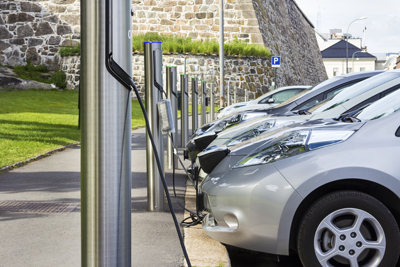By Anthony Hennen, The Center Square
Published March 10, 2023
As electric vehicles overtake Pennsylvania’s roads, lawmakers still have to sort out two things---how to tax them to fund roads and bridges, and how to build out reliable charging stations.
While neither issue has a quick and easy solution, a pilot tax project will grow revenue, and federal cash will expand an electric charging corridor across the state.
Except, some analysts say, it won't be enough to meaningfully fund road and bridge repair.
In 2019, Pennsylvania had almost 10,000 electric vehicles. Today, that count has more than sextupled, with more than 63,000 EVs registered in the state. The Senate Transportation Committee met March 9 to discuss what this means for funding and building out infrastructure.
Pennsylvania relies heavily on the gas tax to fund its roads and bridges, and as gas-powered vehicles get more fuel efficient and more drivers go electric, the cash available to pay for maintenance will fall. To make up for some of that, some lawmakers want to apply a mileage-based user fee to EVs.
“The proposal that we have through the Drive Smart Act would be to charge 3 cents per mile or an opt-out payment of $380, the same amount the average driver pays in gas taxes each year,” said. Sen. Wayne Langerholc, R-Clearfield, and chairman of the committee.
Without an EV fee, drivers could use the roads without paying for maintaining them. As revenues from the gas tax continue to decline, and PennDOT claims it has billions of dollars in unmet needs, a funding gap in the near-term can lead to long-term costs rising.
“Deferred maintenance and replacement due to lack of funds will lead to exponential growth in the highway system’s cost to citizens, residents, businesses and taxpayers in the future,” said George Dougherty Jr., an assistant professor at the University of Pittsburgh. “Not taking care of our maintenance needs now will simply make it more expensive in the future.”
A mileage fee would meet some of those needs, Dougherty noted, and cited its fairness, simplicity, transparency and ease of administration as beneficial. However, the tax isn’t adequate to cover the needs of the transportation system.
“If all 63,000 current (EV drivers) paid the $380 fee, the commonwealth would raise $24 million to assist with an $8 billion funding problem,” Dougherty said.
If the number of EV drivers doubled by 2030, collections would reach $48 million, but the funding problem would have grown to a $12 billion shortfall.
Dougherty suggested setting fees for all drivers based on the cost to infrastructure to cover maintenance, as well as indexing fees to inflation. He also noted charging all classes of vehicles similarly was an unfair status quo that placed a heavier burden on lighter cars.
“I urge the committee to consider fairness in a much broader sense,” Dougherty said. “Our current revenue generation system is unfair across classes of vehicles, much more so than the difference between electric- and fossil-fuel based vehicles. Heavier vehicles and larger vehicles … have a much more detrimental effect in terms of degradation of our infrastructure.”
Regardless of how EVs will fund roads, policymakers are already building out charging stations. More than 1,000 charging stations are active statewide, and Pennsylvania is set to get $170 million through 2026 to build more through the National Electric Vehicle Infrastructure program.
“We are intending to build out alternative fuel corridors as fast as we can,” said Natasha Fackler, PennDOT’s infrastructure implementation coordinator, referring to the federal government’s requirement to have routes with reliable EV chargers. “Once they’re fully built out, then we have the option to use our funding outside the interstate corridors and have the flexibility to use funding on any public roadway.”
Charging stations aren’t the only way to provide power for EVs, either, especially for commercial vehicles.
“Where we see the future of this in talking to our partners and in talking to our customers---our two best customers, FedEx and UPS---are really into inductive charging,” said Mark Compton, CEO of the Pennsylvania Turnpike Commission. “We’re hoping to have a pilot project on one of the later stages of the Mon/Fayette Expressway in inductive charging … inductive charging is going to be the way of the future.”
With inductive charging, vehicles can charge wirelessly through a transmitting pad in the road and a receiving pad in the vehicle, allowing faster charging speeds.










Abby Andrews